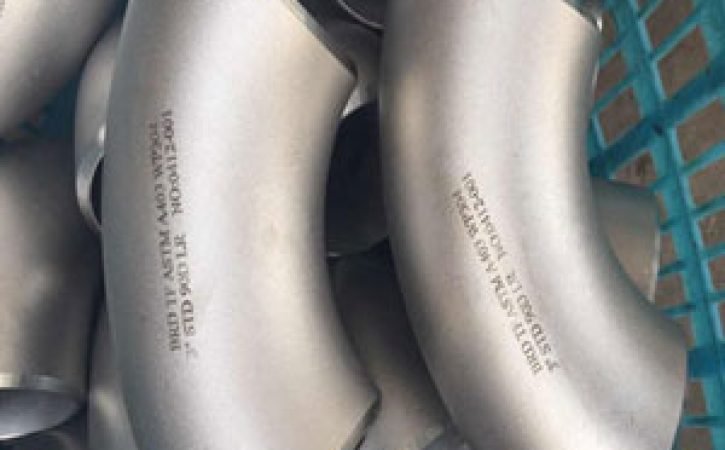
An In-Depth Guide to SS 304 Bolt and 316 Stainless Steel Bolts
Bolts are the unsung heroes of the industrial world, holding structures together and ensuring their stability. When it comes to choosing the right bolts for your project, material selection is paramount. Two of the most popular options are SS 304 bolts and 316 stainless steel bolts. In this comprehensive guide, we will explore the characteristics, applications, and advantages of both SS 304 and 316 stainless steel bolts, helping you make informed choices for your specific needs.
SS 304 Bolt: The Workhorse of Stainless Steel Bolts
- Composition and Properties:
- Chemical Composition: SS 304 bolts are primarily made of iron, chromium, and nickel. This composition imparts excellent corrosion resistance and durability.
- Corrosion Resistance: SS 304 bolt are highly resistant to corrosion, making them ideal for various applications, including outdoor and marine environments.
- Strength: They offer good tensile strength and can withstand moderate loads, making them suitable for many industrial uses.
- Applications:
- General Fastening: SS 304 bolts find widespread use in general fastening applications, including securing machinery, equipment, and structures.
- Food Industry: Their corrosion resistance makes them suitable for use in the food processing and pharmaceutical industries.
- Construction: SS 304 bolts are often used in construction projects where corrosion resistance is essential.
- Advantages:
- Cost-Effective: SS 304 bolts are relatively affordable compared to some other stainless steel grades.
- Widely Available: They are readily available in various sizes and configurations.
- Ease of Fabrication: SS 304 is easy to work with, allowing for custom bolts to be produced efficiently.
316 Stainless Steel Bolts: The Corrosion-Resistant Champion
- Composition and Properties:
- Higher Chromium and Nickel Content: 316 stainless steel bolts have a higher chromium and nickel content compared to SS 304 bolts, which enhances their corrosion resistance.
- Marine Grade: They are often referred to as “marine grade” bolts because of their exceptional resistance to saltwater corrosion.
- Strength: 316 stainless steel bolts have excellent tensile strength and are suitable for high-stress applications.
- Applications:
- Marine and Coastal Environments: 316 stainless steel bolts are a top choice for applications exposed to saltwater, such as shipbuilding and coastal infrastructure.
- Chemical Processing: They are used in chemical processing plants where exposure to corrosive chemicals is common.
- Medical Equipment: The superior corrosion resistance of 316 stainless steel makes it suitable for medical and pharmaceutical equipment.
- Advantages:
- Unmatched Corrosion Resistance: 316 stainless steel bolts offer superior resistance to a wide range of corrosive agents, including saltwater, acids, and chemicals.
- Longevity: They have a longer service life in harsh environments, reducing maintenance and replacement costs.
- High-Temperature Performance: 316 stainless steel maintains its integrity at higher temperatures than SS 304, expanding its application range.
Choosing Between SS 304 and 316 Stainless Steel Bolts
- Environmental Factors:
- Corrosive Environments: If your application is in a highly corrosive environment, especially one with saltwater exposure, 316 stainless steel is the superior choice.
- General Use: For general fastening needs, SS 304 bolts provide ample corrosion resistance and are a cost-effective option.
- Strength Requirements:
- Low to Moderate Loads: If your project involves low to moderate loads, SS 304 bolts are suitable.
- High-Stress Applications: For applications with high-stress requirements, 316 stainless steel bolts offer greater strength and reliability.
- Budget Considerations:
- Cost: SS 304 bolts are typically more budget-friendly than 316 stainless steel bolts. Consider your budget constraints when making a choice.
- Longevity and Maintenance:
- Long-Term Use: If your project demands long-term performance and minimal maintenance, 316 stainless steel is the preferred choice due to its extended service life in corrosive environments.
Conclusion
In the world of fasteners, the choice between SS 304 bolts and 316 stainless steel bolts boils down to the specific requirements of your project. While SS 304 bolts are versatile and cost-effective, 316 stainless steel bolts excel in corrosive and high-stress environments. Understanding the properties, applications, and advantages of each will enable you to make an informed decision that ensures the longevity and reliability of your structures and equipment. Whether you need the corrosion resistance of 316 stainless steel or the versatility of SS 304, both options are readily available to meet your fastening needs.









